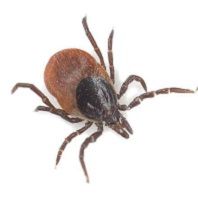Neuropsychiatric Complications Associated with Lyme Disease
Although Lyme disease typically impacts the skin, joints, and heart, it can also cause a variety of neurologic and psychiatric complications for which there are no current treatment guidelines.

In a poster titled “Late-Onset Lyme Disease-Induced Psychosis: Is it Treatable?” presented at the American Psychiatric Association 2016 Annual Meeting, researchers noted that although Lyme disease “mostly affects the skin, joints, heart and CNS,” it can also cause a variety of neurologic and psychiatric complications. One such complication is referred to as late-onset Lyme disease-induced psychosis, which can occur even in patients who have received adequate antibiotic therapy.
At this time, there is no standard treatment protocol for late-onset Lyme disease-induced psychosis.
To illustrate this, they outlined the case of a 26-year-old woman with past psychiatric history of bipolar depression who presented at a regional medical center with “somatic delusions, depressive symptoms including suicidal ideation, and anxiety.
The patient was diagnosed (using DSM-V criteria) with “Psychotic D/O due to another medical condition (Lyme disease) with delusions.” She was prescribed risperidone, divalproex sodium, and duloxetine, which reduced the severity of her depressive and anxiety symptoms, but did not eliminate the somatic delusions.
The researchers reported that the patient was not suicidal at discharge, agreed to take the prescribed treatment regimen, and planned to follow up with an outpatient psychiatrist.
This case presented several diagnostic and treatment challenges, including “the lack of diagnostic tools for identifying neuroborreliosis infection.” This, added to late-onset clinical symptoms that can further impede accurate diagnosis, can create a “gray area” in the management of this condition.
The researchers examined the literature and found multiple cases of late-onset Lyme disease with psychological symptoms. The currently recommended antibiotic regimen for treating late-onset Lyme infection does not adequately treat the neuropsychiatric complications associated with this disease, and the authors suggest “there is still a dire need for an established psychotropic regimen,” as well. They suggested treatment with “conventional typical and atypical psychotropics early in the course of the disease.”